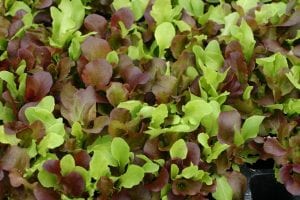Can the particles in the air currently from the Canadian wildfires get into the soil and then into our food being grown locally?
 Smoke and ash from current Canadian wildfires have raised questions about the safety of produce growing on farms and gardens in Connecticut and beyond. While the number 1 concern from wildfire smoke is human health, chemicals found in the smoke don’t just stay in the air and can deposit onto plants and soils.
Smoke and ash from current Canadian wildfires have raised questions about the safety of produce growing on farms and gardens in Connecticut and beyond. While the number 1 concern from wildfire smoke is human health, chemicals found in the smoke don’t just stay in the air and can deposit onto plants and soils.
From a food safety perspective, there is generally low concern about the chemicals present on soils and produce. A study conducted in California examined 200 samples of greens (collard greens, lettuces, kale, and chard) that were exposed to wildfire smoke and ash. The study found no detectable levels of lead, arsenic, mercury, or chromium in any of the samples. However, it is still important to practice basic food safety measures, such as washing hands before handling produce and thoroughly washing produce before consumption.
When the smoke is light to moderate, it can actually enhance crop growth by diffusing light into the plant canopy. However, severe smoke that blocks sunlight can negatively impact photosynthesis and hinder plant growth and development.
Toxic gases present in smoke, such as nitrous oxide, sulfur dioxide, and ozone, can enter plants through their stomata and cause damage to plant tissues. Ozone, in particular, can burn or oxidize tissues in sensitive plants like cucumber, watermelons, beans, and potatoes. Exposure to wildfire smoke can affect the flavor of certain crops like wine grapes, giving them a smoky taste. The reduced photosynthesis and presence of toxic gases can increase plant stress and delay the physiological processes, resulting in delayed growth and harvest. Pollinator activity is also reduced due to smoke there by having a potential issue with crop pollination.
Smoke from wildfires can also have indirect effects on agriculture, creating a ripple effect throughout the farming process. The health concerns of farm workers due to the presence of smoke can hinder various farm activities, including crop scouting, fertilization, spraying, and other essential tasks. These disruptions have the potential to adversely impact crop production and overall agricultural output. Pollinator activity is also reduced due to smoke there by having a potential issue with crop pollination.
Answered by: Shuresh Ghimire, PhD, Vegetable Crops Assistant Extension Educator